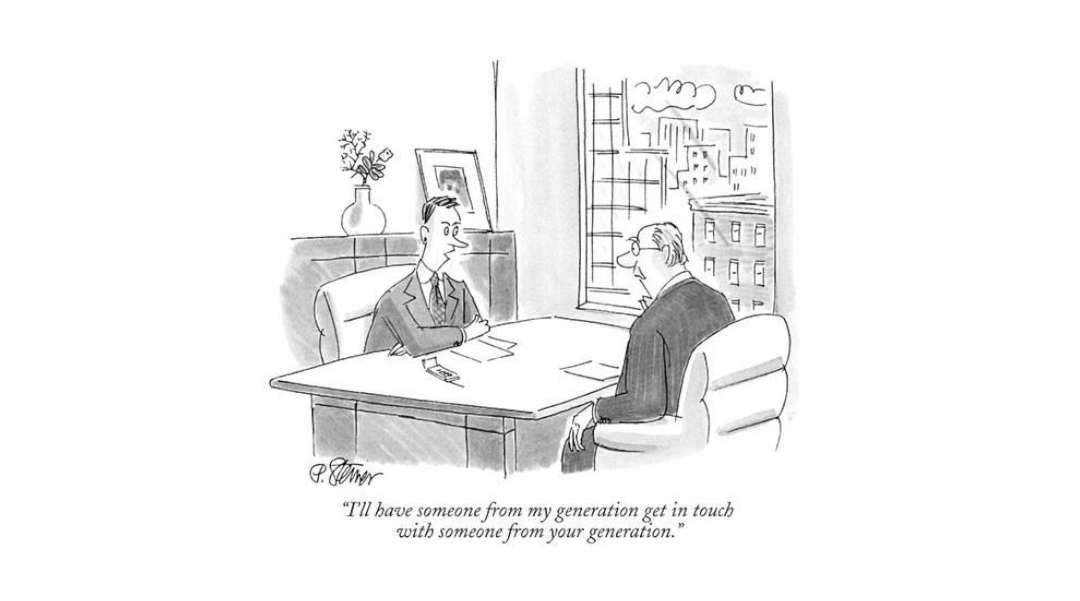In recent years, Millennials have been taking a bad rap. Some comments are fair, but most comments are simply misinformed. Investing the time to understand this group will yield large benefits. Consider the following…
Baby boomers have not retired en masse, and many are wanting to maintain their careers. As a result, you may have up to five generations working under the same roof. Large age differences increase the potential for misunderstandings between co-workers that can disrupt productivity and prove costly to your business.
Millennials (otherwise known as Generation Y, Echo Boomers or Net Gens) currently makeup 50% of the workforce and within five years that will grow to 70%.
Are you equipped to deal with Gen Y as an employee? How about having them as a customer?
How do the five generations stack up?
- Generation Z (1996-present). Parents are Gen X or older Gen Y. Great savers since they have watched their parents struggle.
- Gen Y/Millennials (start: 1977-1981; end 1995-1996). Close to their parents and often have delayed adulthood by living at home, sometimes to age 40.
- Gen X (1965-1976). They have the frustrating reality of boomers not retiring and Gen Y wants to replace them. Is it any wonder they jump jobs?
- Baby Boomers (1946-1964). The Workaholics. They measure commitment by hours spent at work and they expect others to follow suit (telecommuting hours do not count).
- Matures (pre-1946). This group identifies with the military and focus on performing good work. Gen Y trusts this group more than any other.
I recently attended an audit committee meeting on behalf of a client. The partner (a Boomer) was dressed in a business suit while her manager (Gen Y) dressed in a casual outfit with hair that was dyed bright pink and blue. I remembered back to my days working at a large national accounting firm and thought that the partners would have fainted to see a Gen Y. One of my colleagues had a small tattoo on his forearm and had to cover it up with a Band-Aid. How times have changed!
Gen Y often frustrates the older generation. Not only do they have different attire, but they will come to work late and appear to be incessantly on their phone texting each other or listening to music. This group is not tech-savvy, they are tech-dependent. And what about the sense of entitlement that they seem to have? Entitlement is a learned behaviour and guess what … they learned this … from their parents.
What about the expectation of promotions and raises after the first few months on the job? If Gen Y’s first week on the job does not go well, they will spend the second week looking for another job, using your computer. You can see why this frustrates the other generations.
Gen Y has great characteristics. They are a source of great talent, idealism, optimism, entrepreneurial spirit and loyalty. They are the best-educated generations and source of great talent when understood.
How do you tap into this talent?
It’s not complicated.
Take some time to understand Gen Y. They think and respond differently.
For example; If the boss calls a Boomer or Gen X to the office, the assumption is that something is wrong. How does Gen Y respond? If they are not called to the boss’s office, they feel that they are being ignored and may look for another job.
What is the lesson?
Gen Y needs regular feedback. Small snippets are best and need to be specific. If your feedback is an annual review you need to rethink this. Giving Gen Y suggestions for improvement on an annual basis is viewed as a betrayal. Why did you hold back feedback that could have happened a few months ago?
Gen Y has little business experience. What do you need to do?
- Explain what proper business attire (pants that fit and shirts tucked in are an example of business attire).
- Discuss what ethics mean by giving examples.
- Offer training for public speaking so they learn to speak clearly and make eye contact.
- Gen Y does not read books. Offer incentives to read. These are smart people. When they get better as leaders, the whole organization gets better.
Finally, offer the above in a form they can understand; online and readable from a handheld device. Better yet, have a Gen Y produce a short video. They do this all the time on Instagram.
What about long term retention?
- Show step by step paths for their careers by first starting with the end in sight (remember Steven Covey?).
- Salary does not matter as much as connecting on an emotional level. Treat them as individuals. (remember all those studies that have told us salary is not the top motivator)
- Ensure senior management talks to them. (remember how you felt when you were told you are important).
- Ask Gen Y what incentives they would like to have such as time off or special assignment. (remember, public acknowledgement at an award dinner only works for 50% of your staff)
Finally, most of these suggestions are common sense and work for all generations. Investing the time to understand each generation (including your own) pays big dividends and brings harmony to the workplace.
Would you like to learn more?
Contact Richard Onley at the Osborne Group so he can show you how Gen Y creates success for your organization.






